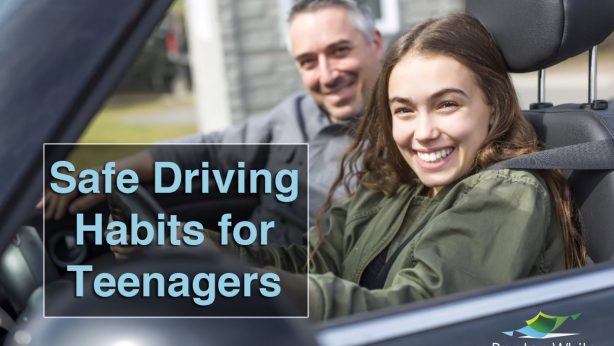Parents play a critical role in helping their teens learn the nuances and complexities of driving. Although graduated licensing requirements vary by state, most mandate a certain number of practice driving hours with a parent or an instructor in the car as part of the process.
Car crashes are the leading cause of death for U.S. teens, and teenage boys are twice as likely to die as teenage girls, according to the Centers for Disease Control and Prevention. New teen drivers are especially dangerous: Research by AAA ‘s Foundation for Traffic Safety shows that 16- and 17-year-olds are nearly three times more likely than adults 30 to 59 to be involved in a fatal crash. The leading cause is driver inexperience; teens simply haven’t been at it long enough to know what to do in all of the myriad scenarios they may encounter.
If your teen is learning to drive, here are some ways to make your time in the car together more effectively.
Keep your emotions in check, and pay attention to theirs.
Even if you think you’re being calm, your teen may not see it that way. “In surveys asking teens what parents could do better, they say, ‘Tell them not to yell at us,’ ” says Robert Foss, director emeritus of the Center for the Study of Young Drivers at the University of North Carolina at Chapel Hill. He cites a study he co-authored that used in-vehicle video cameras to capture parent-teen interactions: Some teens later described their parents as yelling at them even when they hadn’t raised their voices.
As with many other aspects of parenting teens, it’s important to remember that what they’re reacting to may have nothing to do with you.
For Corinne Peek-Asa, director of the Injury Prevention Research Center at the University of Iowa, the timing was everything when sharing feedback with her two teenage daughters. “I had to be patient with their moods,” she explains. “It might have been a good time for me, but it wasn’t for them.”
Sometimes, too, it’s a matter of choosing to remain calm. If your teen seems argumentative, it’s best to refrain from responding in kind and instead to stay focused on the broader picture. “Just roll with it,” Peek-Asa says.
Supervising your teen’s driving when you’re feeling frustrated with each other can actually be counterproductive. Orit Taubman-Ben-Ari, who heads the Positive Family and Developmental Psychology Lab at Israel’s Bar-Ilan University, found that when the atmosphere is tense, parents provide less feedback overall, and what they do share is less focused on safety.
The best approach is one that strikes the right balance between support and control. The Children’s Hospital of Philadelphia has found that parenting styles have a direct impact on teen driving safety and notes that “parents may cut their teen drivers’ crash risk in half if they set driving rules and monitor them in a supportive, non-controlling way.”
Focus on a wide range of skills and driving environments.
Learning the fundamentals of how to operate a car, such as parking, turning, and braking, generally comes fairly quickly. But beyond the basics, teens need higher-order skills that develop with ongoing practice, including scanning for potential hazards and developing general situational awareness so they can anticipate and respond appropriately.
As the CDC notes in its “Parents Are the Key to Safe Drivers” outreach campaign, this includes driving at night, in different kinds of weather and on a variety of roads.
“We learn to drive by driving,” Foss says. “Be sure your teens drive as much as they possibly can, in as wide a range of circumstances as they can, throughout the entire learner license period.”
“A few drives in the country are not enough for city dwellers. A few hours in city traffic are not enough for rural residents. And a couple of long trips on an interstate are not enough for anyone,” he says. He recommends that parents accompany their teens in the full range of conditions, building up over time to more challenging scenarios such as icy roads or rain.
Model and encourage good behavior.
Your teen will probably be paying closer attention to your own driving now, so make sure you’re setting a good example. Research has found that parents who are risky drivers foster the same behavior in their teens, whether it’s driving aggressively, sending or reading texts while driving, or drinking before getting behind the wheel.
When it comes to cellphone use, parents may not realize they’re contributing to bad driving behaviors by expecting teens to answer when they call. Instead, ask your teen to return your call after reaching their destination. (Many newer phones have an auto-reply or “do not disturb” setting that’s triggered when the car is moving.)
In addition to limiting cell phone use (including texting), discourage your teen from having teen passengers in the car, especially early on. A 2012 AAA Foundation for Traffic Safety study found that the risk for 16- and 17-year-old drivers of being killed in a crash was up to four times higher when passengers in the car were under 21.
Prepare for your role.
As a starting point, parents can find their state’s graduated driver licensing requirements on AAA’s teen driving site and the Insurance Institute for Highway Safety’s site.
In addition to the CDC’s “Parents Are the Key to Safe Drivers” website, other resources for parents include the National Safety Council’s “Drive It Home” site.
Remember, though, that what’s required by law is only a baseline. The goal is to help teens develop what Foss calls “a more intuitive understanding of driving.” This doesn’t come from meeting a set number of hours of supervised driving but instead develops over time.
“My kids were supervised forever before they drove on their own,” Peek-Asa says.
This gatekeeper role is a critical one. But how do you know when your teen is ready? Foss suggests it’s when you’d feel comfortable sleeping while your teen drives.
We know it’s a tough time when your teenagers are becoming operators of your automobile. I remember watching our 4 kids go through this and it was a challenge for them and for us. But thankfully, they are great drivers and have had very few accidents or ticket occurrences during their driving lifetime.
Have Questions? Contact Us…
Feel free to EMAIL us at info@BentonWhite.com or TEXT or CALL – 615.377.1212 if we can help you with your insurance. We’re here to help and earn your business!
[Portions of this blog come from an article written by Lisa L. Lewis with ChicagoTribune.com / Online. May 29, 2018)





